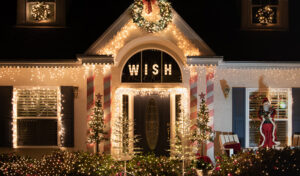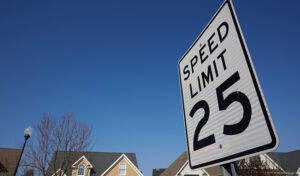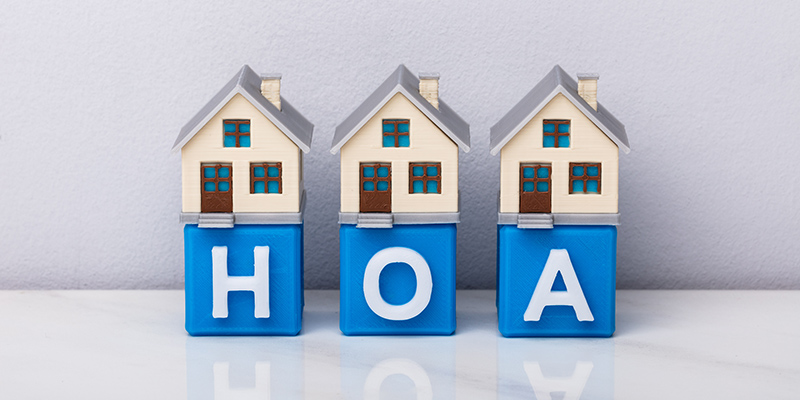Top 10 Important HOA Rules Every Homeowner Should Know
Living in a homeowners association means following the rules of the community. But, what are these HOA rules anyway?
Understanding the Most Common and Important HOA Rules
Homeowners associations have an overall objective of maintaining curb appeal and preserving property values. To do this, associations operate the community, which involves responsibilities such as collecting dues, maintaining common areas, and enforcing rules. Homeowners association rules come in a variety of forms. And while no two communities will have the exact same rules, some rules are more common than others.
As a homeowner, here are the most important HOA rules you should know about.
1. Home and Lawn Maintenance Requirements
The HOA is in charge of keeping common areas clean and well-maintained. For their part, homeowners often have an obligation to keep their individual homes and lawns the same way.
Some typical rules regarding home and lawn maintenance include:
 How often you should mow your lawn
How often you should mow your lawn- What types of plants you can grow
- Whether or not hardscaping is permitted (and what types are allowed)
- When to remove or prune trees
- What height fences can be (and what material or color)
- What types of lawn furniture and sculptures you can display
2. Architectural Guidelines
Perhaps one of the more universal HOA rules and regulations involves architectural changes. This is basically a way the HOA can ensure that all homes follow the overall aesthetics of the community. Associations also usually require you to go through an application and approval process should you want to make any changes to your home. Such changes include adding or modifying a deck, repainting your home, repaving your driveway, changing your roof, or even replacing your mailbox.
In addition to the types of changes you can make, these guidelines also usually delve into the details of the project itself. For example, an HOA may require you to hire a licensed and insured contractor, inform all your neighbors of the project, or only allow work during certain hours or days of the week.
3. Rental Restrictions
Rentals, particularly short-term rentals, have grown in popularity ever since the rise of apps such as Airbnb and Vrbo. And HOA communities have seen an increase in rental homes, too. As a result, many associations now have rental policies that apply to both short- and long-term rentals. Some even ban them altogether.
But, what kind of rental restrictions could you encounter?
- Only allowing long-term rentals in the community
- Only allowing a certain percentage of homes to become rentals
- Requiring you to have owned your home for a set number of years before renting them out (this discourages large companies from buying up a lot of homes with the intention of renting them out)
- Placing a limitation on the total number of years you can rent out your home during the length of your ownership
- Requiring you to submit your tenant’s information and contact details to the HOA
- Requiring you to shoulder the consequences of any rules your tenant breaks
Keep in mind that not all HOAs can restrict rentals in their community. For instance, Section 718.110(13) of the Florida Condominium Act doesn’t allow amendments to the declaration prohibiting owners from renting their units, changing the rental term duration, or limiting how many times owners can rent their units. Such a prohibition would only apply to owners who buy a unit after the amendment’s effective date or to owners who consent to the amendment.
4. Holiday and Lawn Decoration Restrictions
Decoration rules circle back to the goal of HOAs maintaining consistency and uniformity in the neighborhood. These rules often apply to holiday decorations, but they can extend to general decorations (including lawn decorations) as well.
Some examples of these restrictions include:
 When you can put up holiday decorations
When you can put up holiday decorations- When you should remove holiday decorations
- What size your holiday decorations can be
- What types of signs you can post
- Prohibiting inappropriate, violent, or offensive decor
- Prohibiting decorations that are too bright or noisy
5. Home Occupancy Limits
Home occupancy limits are among the rules for HOA communities. This rule generally tells you how many people can live in a single household, typically depending on the square footage of the home/unit or the number of bedrooms. Additionally, an HOA may also limit the number of guests you can have at any given time or require you to sign in your guests when they visit.
6. Trash and Recycling Rules
Trash and recycling rules don’t only benefit the community but also the environment. Popular examples of such rules include regulating what you can throw in the community dumpster, where you can throw your recyclables, and when and where you can take out your trash. Most communities have designated trash pick-up schedules, and leaving your trash out when it’s not scheduled to be picked up can negatively impact curb appeal.
7. Parking or Vehicle Rules
Buying into a planned development means abiding by the rules of HOA living. Another common example of such a rule involves parking and vehicles. While these rules can vary, they typically include the following:
 How many vehicles you can park on your property
How many vehicles you can park on your property- What types of vehicles are permitted and how many (RVs, commercial vehicles, boats, etc.)
- Requiring you to park in a certain space (i.e. your driveway, in your garage)
- Prohibiting street parking
- Operating hours of guest parking lots
- Speed limits
8. Exterior Storage Rules
If you had planned on using your outdoor area as extra storage space, think again. Many HOAs have rules about what you can do with the outside of your home, and that includes whether or not you can place items there. If you have a bike or a kayak, for instance, your HOA might require you to store them in a place where people can’t see them from the street.
Additionally, an HOA may have certain rules about sheds, if it permits them at all. If you wish to construct a shed on your property, you will likely need to get approval from the association. It also has to meet all of the requirements of the HOA for sheds (standing at a certain height, what color it can be, etc.).
9. Pet Rules
Homeowners associations can also have rules concerning pets. This HOA rule can vary from place to place, but they usually include the following:
- The types of pets you can keep (including the breed)
- How many pets you can have
- Where you can and can’t walk your pet/s
- Requiring you to keep your pet/s on a leash or in a cage whenever outside of your home
- Requiring you to pick up after your pet at all times
 10. Noise Rules
10. Noise Rules
It is not unusual to encounter an HOA that has noise rules. These rules are designed to keep the neighborhood peaceful and attractive to both existing residents and potential ones. More specifically, associations will restrict noise during certain hours of the day. This is not surprising considering the fact that even counties and cities have local noise ordinances.
The Bottom Line
As you can see, HOA rules can come in different shapes and forms, and these are only the tip of the iceberg. Because rules can vary, it is important that you familiarize yourself with the specific rules in your community to avoid incurring fines.
Condo Manager provides HOA software solutions to homeowners associations, condominiums, and HOA management companies. Call us today at (800) 626-1267 or contact us online for a free demo!
RELATED ARTICLES:
- HOA Architectural Requests: Keeping Track Of Them With An HOA Management Software
- HOA Fines: Frequently Asked Questions
- Can Homeowners Be Asked To Remove American Flag In HOA Communities?



